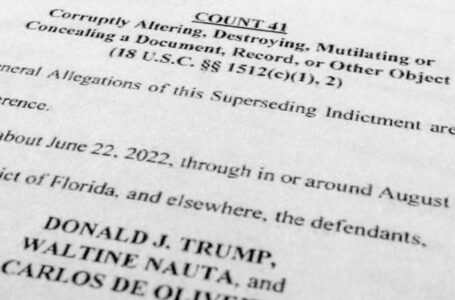North Korea expands weapons plant that makes missiles used by Russia, researchers say
Judge Rules Against Digital Asset Bank Custodia’s Bid for Federal Reserve Master Account


Digital asset bank Custodia Bank has been denied a U.S. Federal Reserve master account by the United States District Court for the District of Wyoming.
The court ruling dismissed Custodia’s plea for a declaratory judgment, but the bank remains determined and is exploring all available options.
“We are reviewing the court’s decision and all of our options, including appeal,” a spokesperson for Custodia Bank stated, indicating the bank’s intent to continue pursuing its case.
Judge Rejects Custodia’s Request for Master Account
In the court filing on March 29, Judge Scott Skavdahl rejected Custodia’s request for a Federal Reserve master account.
Such an account, often referred to as a “bank account for banks,” grants financial institutions access to the Federal Reserve’s payment systems.
Custodia argued that without a master account, it would be at a disadvantage compared to other banking institutions in offering custodial services for crypto-assets.
The lack of a master account would relegate Custodia to dependency on and compliance with an intermediary bank, making it a “second-class citizen,” according to the bank’s claim.
NEW: Here is the outcome of the @custodiabank vs. @federalreserve lawsuit in simple terms:
A Wyoming District judge, Judge Scott Skavdahl, has sided with the Fed in Summary Judgment, meaning the Fed essentially won the case.
The breakdown:
1. Skavdahl sided with the… https://t.co/hMHAhEpCaw
— Eleanor Terrett (@EleanorTerrett) March 29, 2024
Additionally, Judge Skavdahl determined that Custodia is not entitled to overturn the decision of the Federal Reserve Bank of Kansas City (FRBKC):
“Custodia is not entitled to its requested writ of mandamus compelling FRBKC to issue its master account, and summary judgment on Claim II must be granted in FRBKC’s favor.”
Custodia Bank had applied for a Federal Reserve master account in October 2020.
Approval of the application would have granted the bank access to the Fedwire network, which processed over 193 million transactions in 2023.
However, in January 2023, Custodia’s membership application was rejected by the Federal Reserve, citing its involvement in the crypto space as inconsistent with the required factors under the law.
Custodia Bank, one of Wyoming’s pioneering Special Purpose Depository Institutions (SPDIs), also known as “blockchain banks,” was established to assist businesses that faced difficulties securing banking services from the Federal Deposit Insurance Corporation due to their engagement in crypto-related activities.
Collapse of Crypto-Friendly Banks in 2023
In 2023, four major US lenders failed, including Silvergate Bank, Signature Bank, Silicon Valley Bank, and First Republic Bank.
Among these banks, the failure of Silvergate and Signature was partly related to the 2022 crypto meltdown.
Heartland Tri-State Bank, a community bank in Elkhart, Kansas, was also forced to shut down last year after its CEO, Shan Hanes, lost millions of dollars in a cryptocurrency scam.
The incident unfolded when Hanes, desperate to retrieve his money from a supposed cryptocurrency investment, approached one of his wealthy clients with a peculiar request.
The banker asked the client to lend him $12 million, promising to repay the loan with an additional $1 million in interest after just 10 days.
Hanes said he was investing in crypto with the help of someone else and claimed that there were some wire payment issues, which needed an infusion of more funds.
However, it was later discovered that Hanes had indeed wired the $12 million, which led to the Kansas Office of the State Bank Commissioner launching an investigation into the bank and declaring it insolvent.
The post Judge Rules Against Digital Asset Bank Custodia’s Bid for Federal Reserve Master Account appeared first on Cryptonews.











